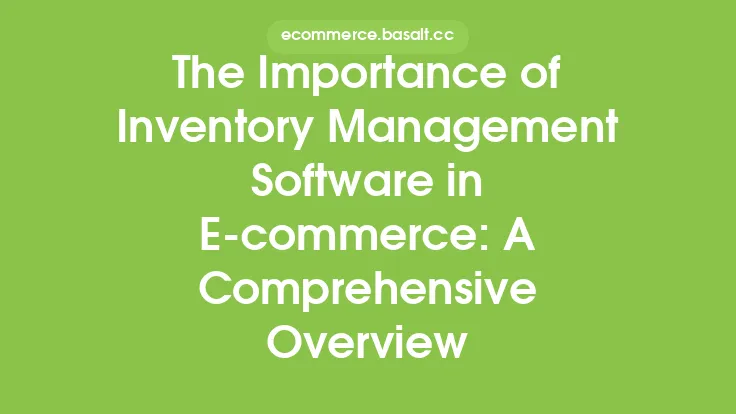In today's digital age, e-commerce businesses rely heavily on accurate and consistent product information to drive sales, customer satisfaction, and ultimately, revenue growth. Product information management (PIM) plays a crucial role in ensuring that product data is accurate, up-to-date, and consistent across all channels and touchpoints. At the heart of effective PIM is data quality, which is essential for building trust with customers, reducing errors, and improving overall business performance.
What is Data Quality in PIM?
Data quality in PIM refers to the accuracy, completeness, and consistency of product information. It encompasses various aspects, including product descriptions, specifications, images, pricing, and inventory levels. High-quality data ensures that customers receive accurate and reliable information, which is critical for making informed purchasing decisions. In contrast, poor data quality can lead to customer frustration, lost sales, and damage to a company's reputation.
The Consequences of Poor Data Quality
Poor data quality can have far-reaching consequences for e-commerce businesses. Some of the most significant consequences include:
- Inaccurate product information, which can lead to customer complaints and returns
- Inconsistent pricing and inventory levels, which can result in lost sales and revenue
- Poor search engine optimization (SEO), which can reduce website visibility and traffic
- Inefficient supply chain management, which can lead to stockouts and overstocking
- Difficulty in analyzing customer behavior and preferences, which can hinder marketing efforts and sales growth
Benefits of High-Quality Data in PIM
On the other hand, high-quality data in PIM can bring numerous benefits to e-commerce businesses. Some of the most significant advantages include:
- Improved customer satisfaction and loyalty, which can lead to increased sales and revenue
- Enhanced search engine optimization (SEO), which can increase website visibility and traffic
- Better supply chain management, which can reduce stockouts and overstocking
- Improved analytics and insights, which can inform marketing efforts and sales growth
- Increased efficiency and productivity, which can reduce costs and improve profitability
Best Practices for Ensuring Data Quality in PIM
To ensure high-quality data in PIM, e-commerce businesses should follow best practices, including:
- Implementing a robust data validation and verification process
- Establishing clear data governance policies and procedures
- Providing ongoing training and support for employees responsible for data management
- Using automated data processing and synchronization tools
- Conducting regular data audits and quality checks
The Role of Technology in Ensuring Data Quality
Technology plays a critical role in ensuring data quality in PIM. Some of the most effective technologies include:
- Data validation and verification tools, which can automatically check data for accuracy and consistency
- Data governance platforms, which can provide a centralized repository for data management and governance
- Automated data processing and synchronization tools, which can reduce manual errors and improve data consistency
- Artificial intelligence (AI) and machine learning (ML) algorithms, which can analyze data and identify patterns and anomalies
- Cloud-based PIM solutions, which can provide scalability, flexibility, and real-time data synchronization
Measuring and Monitoring Data Quality
To ensure ongoing data quality, e-commerce businesses should establish metrics and benchmarks for measuring and monitoring data quality. Some common metrics include:
- Data accuracy and completeness
- Data consistency and standardization
- Data timeliness and freshness
- Data coverage and scope
- Customer satisfaction and feedback
Conclusion
In conclusion, data quality is a critical component of effective product information management. E-commerce businesses that prioritize data quality can improve customer satisfaction, reduce errors, and drive revenue growth. By following best practices, leveraging technology, and measuring and monitoring data quality, businesses can ensure that their product information is accurate, consistent, and reliable. As the e-commerce landscape continues to evolve, the importance of data quality in PIM will only continue to grow, making it essential for businesses to prioritize data quality and invest in the necessary tools and technologies to support it.





